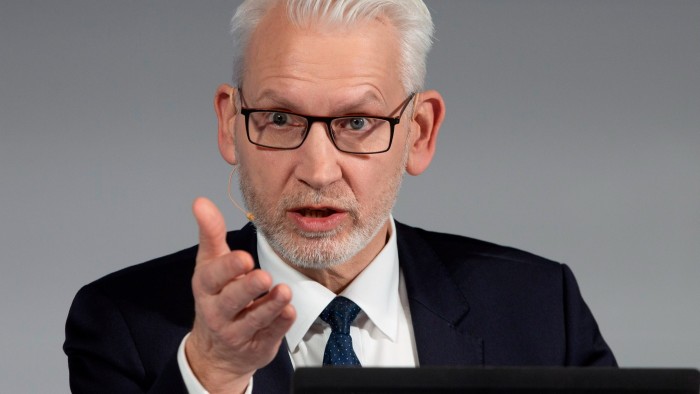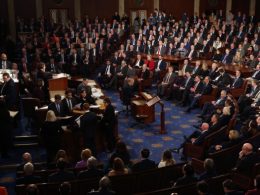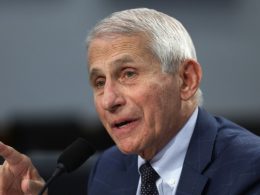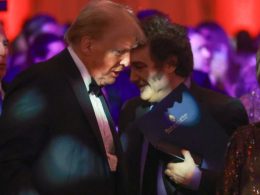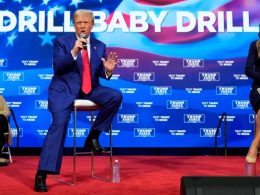Unlock the Editor’s Digest for free
Roula Khalaf, Editor of the FT, selects her favourite stories in this weekly newsletter.
The boss of German’s energy importer Uniper has said the company is working to protect its fleet of liquefied natural gas tankers from seizure by nations friendly to Russia.
The company, the EU’s biggest buyer of gas from Russia before 2022, was hit with a €14bn penalty by a Russian court in March as part of an international dispute with the subsidiary of state-backed gas company Gazprom.
Mike Lewis, Uniper’s chief executive, said while there was no indication that Moscow was seeking to enforce what the company has called a “politically motivated” penalty, he was still concerned that Russia could get allies to target its shipments of LNG.
“We have vessels around the world,” he told the Financial Times. “So the question is, if you dock in a country and you are discharging gas into that gas system, could there be a challenge there?”
Uniper has become one of the casualties of the upending of business ties between Moscow and the West since the full-scale Russian invasion of Ukraine in 2022, taking a €4bn hit last year after the seizure of its Moscow-based power generation business by the state.
However, the Düsseldorf-based company won a victory over Gazprom in an internationally-recognised tribunal in Sweden in June, which awarded Uniper €13bn over gas that was not delivered by Gazprom.
The St Petersburg court ruling in March was part of a failed attempt by Russia to block the Swedish arbitration.
Data from maritime analytics provider Kpler shows that four tankers chartered by Uniper — which buys LNG from Azerbaijan, Australia and the US — have docked in ports around the world since the ruling, including close Russia allay China.
Lewis said Uniper, which was nationalised after it suffered a €19bn loss because of Putin cutting gas supplies to Europe in 2022, was carefully looking at the countries it dealt with and conducting legal analysis to assess the risk of action against its fleet.
Moscow has threatened to seize the assets of “naughty” European and US companies in retaliation against western seizures of Russian assets worth hundreds of billions of euros.
Austria’s OMV, the Czech Republic’s Net4Gas, France’s Engie and the Netherland’s Gasunie have all faced similar Russian court rulings in a bid to stop international arbitration cases against Gazprom.
But some analysts believe that other countries would not seize tankers or their cargo on behalf of Russia as that would risk disputes with western nations.
“I don’t see any government risking its own reputation and position in order to help Russia enforce [the financial penalties] against Uniper,” said Agnieszka Ason, a senior visiting research fellow at the Oxford Institute for Energy Studies.
Still, the case illustrates the challenges of unpicking economic and business ties between Russia and Germany, which for decades depended on cheap Russian gas to power its industrial sector.
It comes as Uniper prepares to float a portion of its shares as part of a plan to return it to private ownership after the €13.5bn government bailout. The business posted a profit of around €6bn in 2023, and made its first payment to the German government in September.
The company last month lifted its guidance for earnings before interest, taxes, depreciation and amortisation to €2.5bn to €2.8bn, from a previous estimate of €1.9bn to €2.4bn, after resolving unspecified legal issues.
Lewis said Uniper’s victory against Gazprom in the international tribunal was important for its return to private ownership, even if it was unlikely to receive the money “any time soon”.
The ruling enabled Uniper to end a multibillion dollar gas contract with Gazprom Export that would have run into the mid-2030s. It was important to no longer have that liability “hanging over us”, Lewis said
The British chief executive, who has headed Uniper since June 2023, said the company was “very much in a stronger position” than 18 months ago, making it “an attractive proposition for any potential future investor”.
Source link





